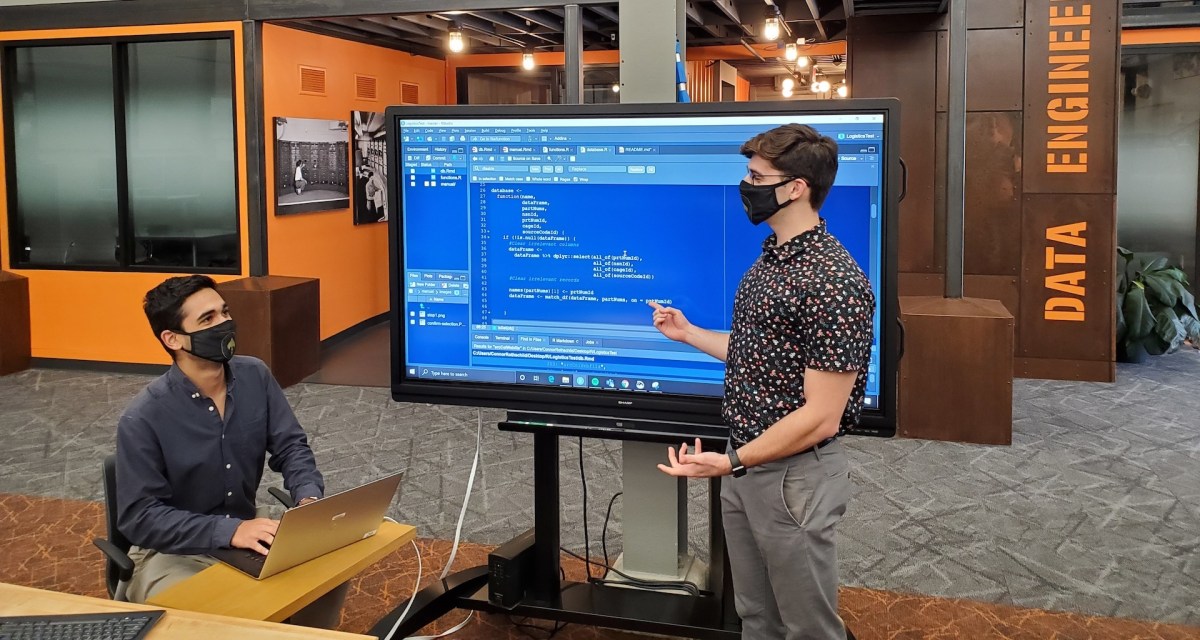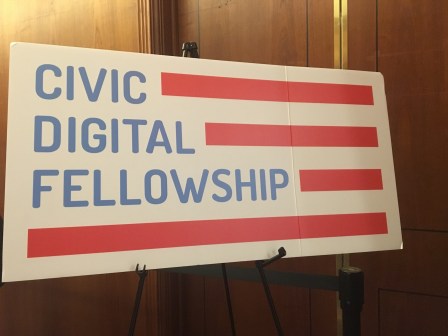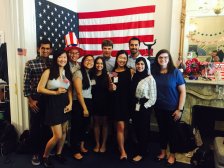How SOCOM tapped college students to work on new tech

When the U.S. military’s special forces needed backup, they called on some college kids.
During the summer of 2020, the U.S. Special Operations Command (SOCOM) partnered with Coding it Forward, a program with a mission to get young, civic-minded STEM students into government, for a specialized internship program. The students worked directly on projects related to predictive maintenance, automation and video indexing, getting their hands on mission-critical code and real data.
SOCOM found such “tremendous progress” with the internship program, it plans to continue using internships as a new way to get more technology talent in the door.
“Until we are able to fix the talent pipeline … we need more,” Nicole Nemmers, a SOCOM official who helped oversee the program, told FedScoop in an interview.
Hiring young interns, training them on the job and offering them future employment has been a common practice in finding talent in the private sector. Facing the eternal challenge of attracting tech talent to the government and retaining it, SOCOM sees internships as a possible solution.
It was also new territory for Coding it Forward, which for years has placed young data scientists and software engineers in federal agencies like the Census Bureau through its Civic Digital Fellowship. SOCOM was the first military or national security-focused organization the program worked with, a move that it hopes to continue.
For the Pentagon, recruiting more technology talent has become a higher priority as it faces the reality that the future of warfare will be technology-driven. Leaders all the way up to the secretary level have said that harnessing artificial intelligence and other emerging technologies will be paramount to victory in the coming years, and engineers who understand the complicated tech need to be in the building.
Top cover
The partnership with SOCOM started at the top. Coding it Forward co-founder Chris Kuang met with SOCOM Commander Gen. Richard Clarke and then-Chief Data Officer Dave Spirk (now CDO of the DOD) when they visited Harvard in the fall of 2019 to discuss artificial intelligence and machine learning. Kuang, then a student, pitched the pool of STEM fellows he and co-founder Rachel Dodell had organized as a way to fill the talent gaps Clarke and Spirk faced – an idea that both the long-time military officers embraced.
“We had that conversation and realized we could make that fit,” Kuang said.
After their initial meeting, Coding it Forward selected candidates from about 1,000 applicants. Six were placed with SOCOM, some in the Washington, D.C. area, and some at the SOCOM headquarters in Tampa, Fla.
The work included an AI-based predictive maintenance project on CV-22 helicopters, highly automated video indexing (HAVI) for the visual media SOCOM captures and building business process improvement applications. While the pandemic forced some of their work and extra-curricular mentoring activities to be done remotely, every intern did have some in-person work due to SOCOM’s paramount security requirements.
Three of the six interns have gone on to work in the national security sector, either directly for SOCOM or with contractors, Dodell said. The others had to go back to classes in the fall.
Nemmers, who’s officially SOCOM’s chief of mission management for its Command Data Office, said many of her colleagues were excited to see young faces virtually and in-office.
“Everyone was pretty excited,” she said. “Everyone recognizes the talent we have in the space.”
The diversity of the team was an added benefit, Nemmers said, pointing to the cohort’s mix of gender and racial backgrounds as an important part of building teams especially when it comes to working on things like AI.
Coding it Forward plans to keep sending interns to SOCOM and other parts of the federal government. SOCOM said it is already looking for more groups to partner with.
“There is a severe lack of talent,” Nemmers said. “We absolutely look to use internships as a way to hire.”
In public appearances, Gen. Clarke has also endorsed the program as a key part of the “AI-ready workforce.” The general also attended the final presentation this summer for the Coding it Forward cohort, a move those involved with the program welcomed as an indication of his support.
“We are excited by continued support from leadership,” Dodell said.

This story was featured in FedScoop Special Report: The Future of Telework - A FedScoop Special Report




